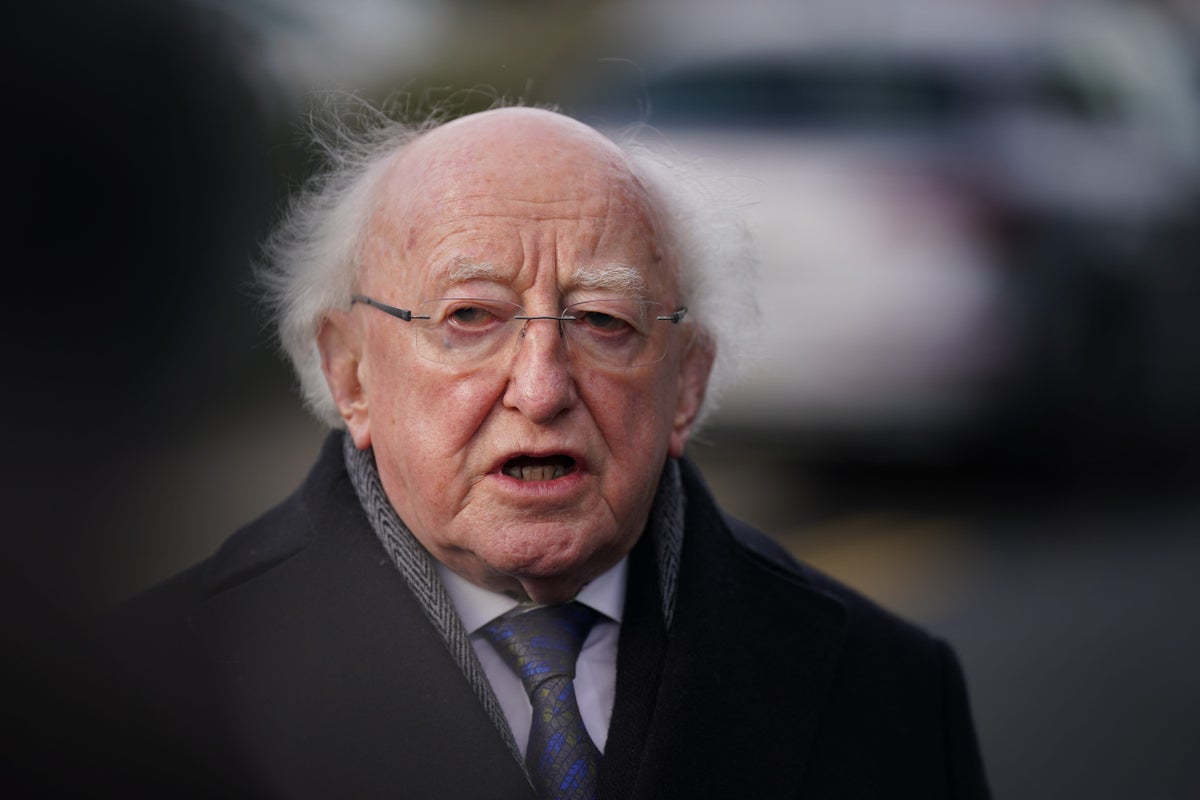
Ireland’s president has said that “collective punishment” cannot be accepted and there must be a push for the independent verification of facts in relation to the Israel-Hamas conflict.
Michael D Higgins said a solution must be found that both delivers “a reasonable security” to Israeli citizens and provides “long-neglected rights” to the Palestinian people.
He hit out at breaches of international law by both state and non-state actors and said the “ongoing horrific loss of civilian life” in both Gaza and Israel “should concern us all”.
The former communications minister said it was important that those killed in the fighting were “not reduced to competing press releases”.
“Violence by non-state as well as state actors must be described for what it is – breaches of international humanitarian law,” Mr Higgins said.
The Hamas-run health ministry has said more than 9,000 people have been killed in the Gaza Strip since 7 October, when militants launched rockets, killed hundreds of Israeli citizens, and took hostages to Gaza.
Israel launched a military response in the wake of the atrocities; aid agencies are now battling a humanitarian crisis in Gaza with limited resources.
Some British nationals have been able to leave the war-ravaged region through Egypt’s Rafah crossing this week; around 35 Irish passport-holders are still in the territory.
“If international law is to be respected, it is important that hostages be released and an immediate humanitarian ceasefire be put in place,” Mr Higgins said on Thursday.
“In this terrible ongoing loss of civilian life, that is having such a devastating impact on families on all sides, with the large proportion of those killed being women and children, it is important that there be a verification of figures, that the lives lost are not reduced to competing press releases.”
He said the lack of resources for Gaza’s hospitals was “unacceptable” and said that groups including the European Union cannot allow their messages “to have ambiguous construction”.
“The enlistment of civilians for military purposes on any side has to be recognised and addressed; collective punishment is not something we can accept and claim to be advocates of international law,” Mr Higgins said.
“It is simply unacceptable that hospitals and those being cared for within them are threatened by the basic lack of resources, damaged or indeed threatened with destruction, or those within them forced to be evacuated.
“Those in the international community who are anxious to support international law, see it vindicated in its fullest sense, including the Geneva Convention, must press for an independent verification of the facts.
“International bodies, including the European Union and members of the broader international community, who remain silent or allow their messages to have ambiguous construction, have a responsibility to commit to vindicating international law.”
He said that not doing so would do “little less than the granting of impunity to those involved in a conflict”.
Mr Higgins also said that “no other issue” should stand in the way of protecting children “for even a minute”, and said that “friendships, alliances and partnerships” could be tested.
He also said he was proud of the work of Irish non-profits in the region and admired the “extraordinary courage and commitment” of medical personnel who stay with their patients, even when their lives are at risk.
Mr Higgins added: “If we are to move past the present events, we need the capacity to verify what are the facts on the ground and to respond to them, removing all blocks to humanitarian relief, indicating how a space for diplomacy can be found, and out of all of this how a consistent diverse body of proposals might come forward, ones that can deliver a reasonable security to citizens of Israel, and at the same time achieve the delivery of the long-neglected rights of the Palestinian people; offering the prospect of peace to future generations who must share space and life together as neighbours.”







